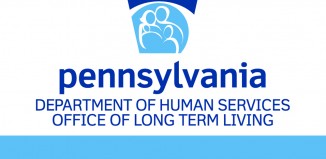COVID-19 FAQs for State Medicaid and CHIP Agencies
CMS has posted additional Medicaid & CHIP COVID-19 FAQs on June 30, 2020, designed to aid State Medicaid and CHIP agencies in their response to the pandemic. The FAQs address key questions on Home and Community-Based Services; the Money Follows the Person program; and Advance and Retainer Payments (for home and community-based services). Topics include:
- Eligibility and Enrollment;
- Notice and Fair Hearings;
- Optional COVID-Testing Group FAQs;
- Premiums and Cost Sharing;
- Benefits;
- Non-Emergency Medical Transportation (NEMT);
- Information Technology; and
- Financing
In the Financing Q&A section (beginning on page 23 of the document), there are several items that providers should pay close attention to. On pages 24 and 25 the guidance regarding Retainer payments presents guiderails that states are expected to follow. An excerpt is below:
States interested in utilizing retainer payments for multiple (up to three) episodes of up to 30 days per beneficiary will be expected to include or add the following guardrails in their Appendix K submissions:
- Limit retainer payments to a reasonable amount and ensure their recoupment if other resources, once available, are used for the same purpose. In terms of setting a reasonable amount, a retainer payment cannot exceed the payment for the relevant service; the state may specify that a retainer payment will be made at a percentage of the current rate, or a state may specify retainer payments will not be made to a setting until attendance is below an identified percentage of the enrollment (e.g., 75 percent).
- Collect an attestation from the provider acknowledging that retainer payments will be subject to recoupment if inappropriate billing or duplicate payments for services occurred (or in periods of disaster, duplicate uses of available funding streams), as identified in a state or federal audit or any other authorized third party review. Note that “duplicate uses of available funding streams” means using more than one funding stream for the same purpose.
- Require an attestation from the provider that it will not lay off staff and will maintain wages at existing levels.
- Require an attestation from the provider that they had not received funding from any other sources, including but not limited to unemployment benefits and Small Business Administration loans, that would exceed their revenue for the last full quarter prior to the PHE (public health emergency), or that the retainer payments at the level provided by the state would not result in their revenue exceeding that of the quarter prior to the PHE.
- If a provider had not already received revenues in excess of the pre-PHE level but receipt of the retainer payment in addition to those prior sources of funding results in the provider exceeding the pre-PHE level, any retainer payment amounts in excess would be recouped.
- If a provider had already received revenues in excess of the pre-PHE level, retainer payments are not available.
CMS also clarifies that consecutive days are those days that are eligible for billing. As typical day habilitation services are rendered Monday through Friday, 30 consecutive billing days would encompass a 6-week period of time.
These newly released FAQs have also been integrated into the previously released COVID-19 FAQ document, available online.









